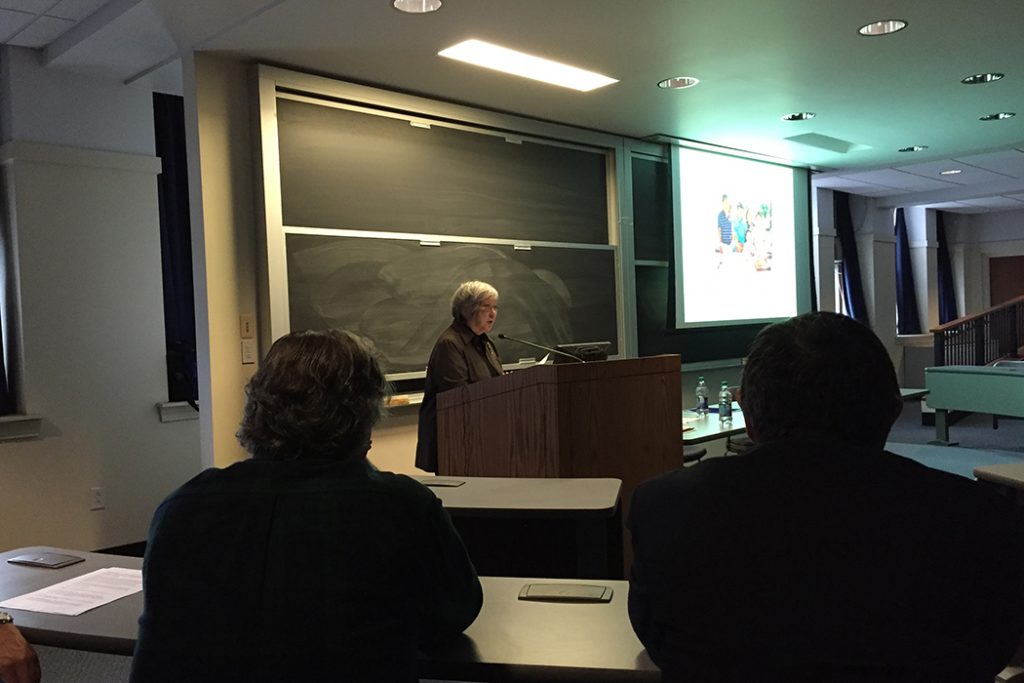Remembrance and advocacy were the dominant themes at the Fred Korematsu Day event at BC Law on Feb. 1. Speakers shared analyses of and anecdotes about the personal shame and eventual national disgrace that resulted from the internment of the Japanese in American camps during World War II and agreed that Korematsu v. United States is still relevant today.
In 1942, after the Japanese attack on Pearl Harbor, 120,000 people of Japanese ancestry who lived on the Pacific coast were placed in camps due to the US government’s fear of espionage. Only a few individuals challenged the internment; Fred Korematsu was one of them. Korematsu’s lawsuit became a landmark case in which the US Supreme Court declared the Japanese internment constitutional. Although this case is viewed today as a mistake of the past, Korematsu still has important implications in the modern day.
Margie Yamamoto, co-president of the New England Japanese American Citizens League, was born two weeks after her family was sent to the Gila River internment camp in Arizona. She shared a personal narrative describing her family’s experience, pointing out in particular her father’s sense of shame and guilt from being interned. “He didn’t realize that what had happened to us was unjust,” she explained. Yamamoto concluded her story with a lesson: that we must work hard to make sure injustices like this are recognized and kept from happening again.
Professor Paul Watanabe, who teaches political science the University of Massachusetts Boston and is director of the Institute for Asian American Studies, explored the wrongheaded “us versus them” mentality that prevailed at the time. Though the US government’s main justification for the internment was military necessity, he said, not a single case of sabotage was successfully prosecuted during this period. He suggested that perhaps the real reason for the internment was fear of economic competition by the Japanese, and that Pearl Harbor simply provided the government with an opportunity to restrict Japanese prosperity.
Whatever the reason, Professor Watanabe noted that this type of hostility still exists, particularly now toward Arab and Muslim Americans. He agreed with Justice Robert Jackson’s dissent in Korematsu, which said that racial discrimination in criminal procedure is like “a loaded weapon” in the hands of our government that must be unloaded.
Erica Harth, a professor emerita of humanities and women’s studies at Brandeis University, called the internment a “legitimized incarceration of a race of people” that could happen today, given the paranoia—exacerbated by disinformation and ignorance—that pervades American politics.
BC Law Professor Dean Hashimoto concluded the event with a thought that echoed the sentiments of all the speakers at the event, which was sponsored by Asian Pacific-American Law Students Association. He said that in addition to remembering Korematsu, the courts need to resurrect it and use it to address today’s race, nationality, and security issues.
While this is a challenging conversation to have, Hashimoto and the other speakers were clear in their message to the BC Law community, that remembrance and advocacy are the places to start.


